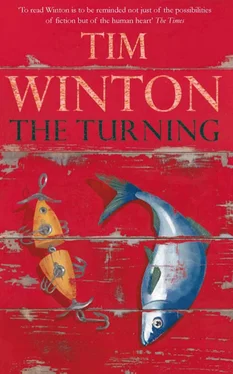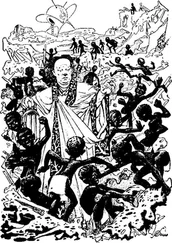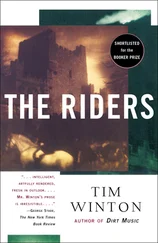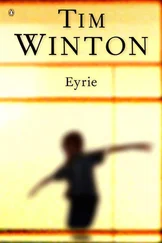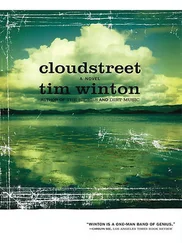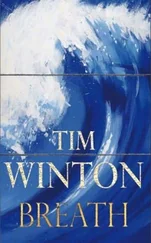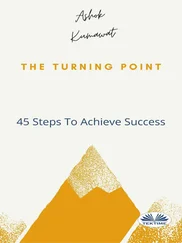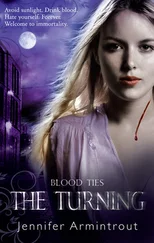I went to bed. But I lay awake all night. I thought of the dullards I would face in the morning, the smell of their dirty hair, the stiffness of their hands on the instruments, the Mariah Carey tunes they’d bleat at me. In flickering bursts I thought about the war but I knew that I was only trying to think about it, because my mind was elsewhere, travelling in loops and ellipses away from middle age on the all-night sound of the moving tide.
Before dawn and without waking my wife or even leaving her a note, I rose, made myself coffee and began the five-hour drive back from Angelus to the suburbs where I grew up.
The battlers’ blocks. In the early sixties, that’s what they called the meagre grid of limestone streets of my childhood. Suburban lots scoured from bushland so that immigrants from Holland, England and the Balkans, and freckly types like us, barely a generation off the farm, could build cheap houses. Our street wound down a long gully that gave on to a swamp. A few fences away the grey haze of banksia scrub and tuart trees resumed with its hiss of cicadas and crow song. Houses were of three basic designs and randomly jumbled along the way to lend an air of natural progression rather than reveal the entire suburb’s origins in the smoky, fly-buzzing office of some bored government architect. Our homes were new; no one had ever lived in them before. They were as fresh as we imagined the country itself to be.
As they moved in, people planted buffalo grass and roses and put in rubber trees which brought havoc to the septics a decade later. From high on the ridge the city could be seen forming itself into a spearhead. It was coming our way and it travelled inexorably in straight lines. The bush rolled and twisted like an unmade bed. It was, in the beginning, only a fence away.
The men of our street went to work and left the driveways empty. They came home from the city tired, often silent. They scattered blood and bone on their garden beds and retired to their sheds. All day the women of the street cleaned and cooked and moved sprinklers around the garden to keep things alive. Late in the morning the baker arrived in his van, red-cheeked from civilization, and after him the man with the vegie truck. At the sound of their bells kids spilled out into the dusty street and their mothers emerged in housecoats and pedal pushers with rollers in their hair. Everyone was working class, even the Aborigines around the corner whose name was Jones, though it seemed that these were Joneses who didn’t need much keeping up with. We were new. It was all new.
At night when I was a baby my parents went walking to get me to sleep and while they were out they foraged for building materials in the streets beyond where raw sandy lots lay pegged out between brickies’ sheds and piles of rough-sawn jarrah.
The old man built a retaining wall from bricks he loaded into the pram that first summer. A lot of sheds went up quickly in our street. All those jarrah planks, all that asbestos sheeting, those bags of Portland cement. It was all taxpayers’ property anyway. Great evening strollers, the locals.
I grew up in a boxy double brick house with roses and a letterbox, like anyone else. My parents were always struggling to get me inside something, into shirts and shoes, inside the fence, the neighbourhood, the house, out of the sun or the rain, out of the world itself it often seemed to me. I climbed the jacaranda and played with the kids across the street and came in ghosted with limestone dust. I sat on the fence and stared at the noisy blue bush and in time I was allowed to roam there.
When the road crew arrived and the lumpy limestone was tarred the street seemed subdued. The easterly wind was no longer chalky. In July and August when it finally rained the water ran down the hill towards the reedy recess of the swamp. A little way from our place, outside the Dutchies’ house with its window full of ornaments, a broad puddle formed and drew small children to its ochre sheen. The swamp was where we wanted to be, down there where the melaleucas seemed to stumble and the ducks skated, but our parents forbade it; they talked of quicksand and tiger snakes, wild roots and submerged logs so we made do with the winter puddle outside the van Gelders’. I remember my mother standing exasperated in the rain with the brolly over her head at dusk while I frog-kicked around in my speedos.
Eventually the road crew returned to put a drain in and my puddle became less impressive. Then a red telephone box appeared beside it. I suppose I was five or six when I learned to go in and stand on tiptoe to reach up and dial 1194 to hear a man with a BBC voice announce the exact time. I did that for years, alone and in company, listening to the authority in the man’s voice. He sounded like he knew what he was on about, that at the stroke it would indeed be the time he said it was. It was a delicious thing to know, that at any moment of the day, when adults weren’t about, you could dial yourself something worth knowing, something irrefutable, and not need to pay.
When I was old enough I walked to school with the ragged column of kids who made the mile-long journey up the hill. From the high ground of the schoolyard you could see the city and the real suburbs in the distance. You could even smell the sea. In the afternoons the blue bush plain was hazy with smoke and the dust churned up by bulldozers. At home on winter nights great bonfires of fallen trees flickered in the sky above the yard. Beyond the fence cicadas and birds whirred. Now and then the hard laughter of ducks washed up the street; they sounded like mechanical clowns in a sideshow. When summer came and the windows lay open all night the noise of frogs and crickets and mosquitoes pressed in as though the swamp had swelled in the dark.
The smallest of us talked about the swamp. Down at the turnaround where the lupins and wild oats took over, we climbed the peppermint to look out across that wild expanse, but for the longest time we didn’t dare go further.
Bruno the Yugo went to the swamp. He had a flat head and he was twelve. He ranged down through the reeds until dark, even though his oldies flogged him for it. Across from Bruno lived the Mannerings. They were unhappy Poms whose house smelled of boiled cabbage. George the father had very long feet. He wore socks and plastic sandals. His son Alan waited for me after school some days to walk behind me and persecute me wordlessly the whole way home. He was twelve and scared of Bruno the Yugo. I never knew why he picked me from all the kids in our street. He never said a thing, just poked and prodded and shoved until we came down the hill to within sight of our homes. He was tall and fair, Alan Mannering, and though I dreaded him I don’t think I ever hated him. When he spoke to someone else beyond me his voice was soft and full of menace, his accent broadly local as my own. Some days he threw his schoolbag up onto the verandah of his place and headed on down to the swamp without even stopping in and I watched him go in relief and envy. Mostly I played with the Box kids across the road. There were seven or eight of them. They were Catholics and most of them wet the bed though it was hard to say which ones because they all had the same ammonia and hot milk smell. I liked them, though they fought and cried a lot. We slipped through the bush together where there were no straight lines. Beyond the fence there were snarls and matted tangles. We hid behind grasstrees and twisted logs and gathered burrs in our shirts and seeds in our hair. Eventually the Boxes began to slip off to the swamp. I always pulled up short, though, and went back to dial 1194 for reassurance.
Another Pom moved in next door. I saw him digging and stood on the fence to watch, my shadow the only greeting. I watched him dig until only his balding head showed. He winked and pointed until I climbed down into his yard. I shuffled over to the lip of his hole and saw the wet earth beneath his sandals. A puddle began to form around his feet.
Читать дальше
